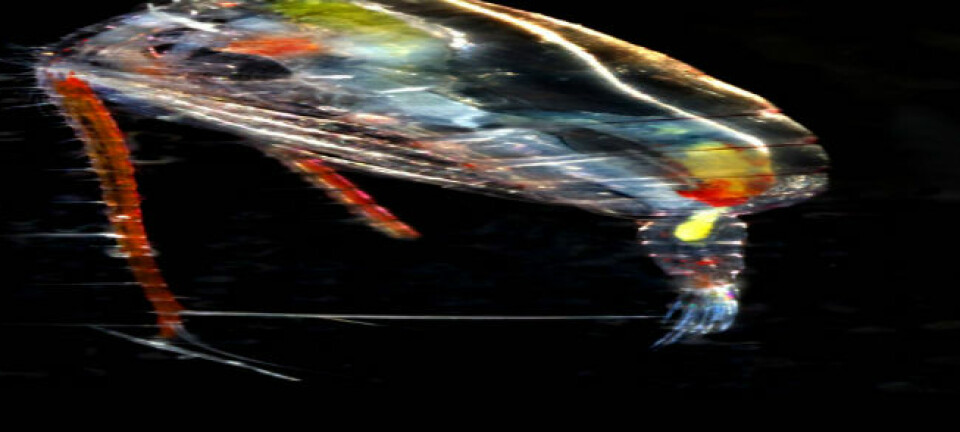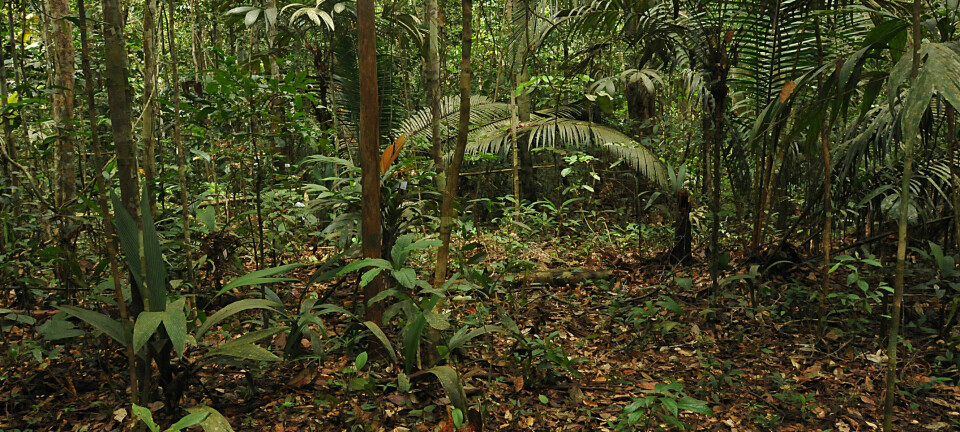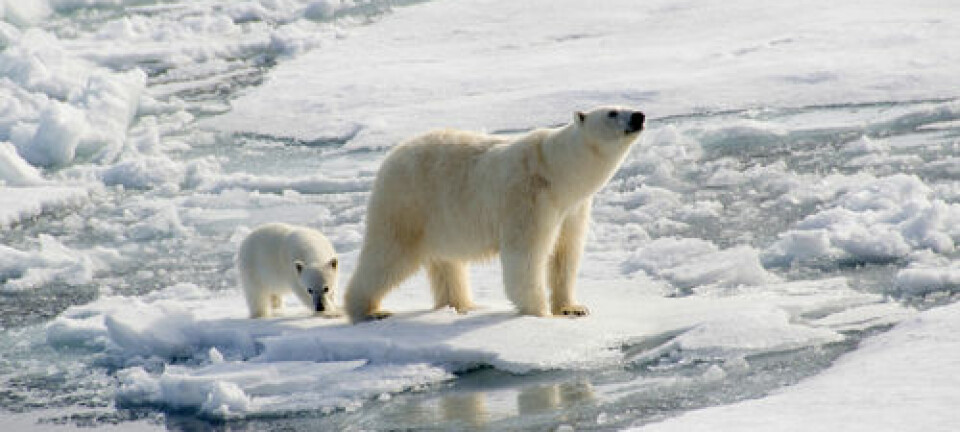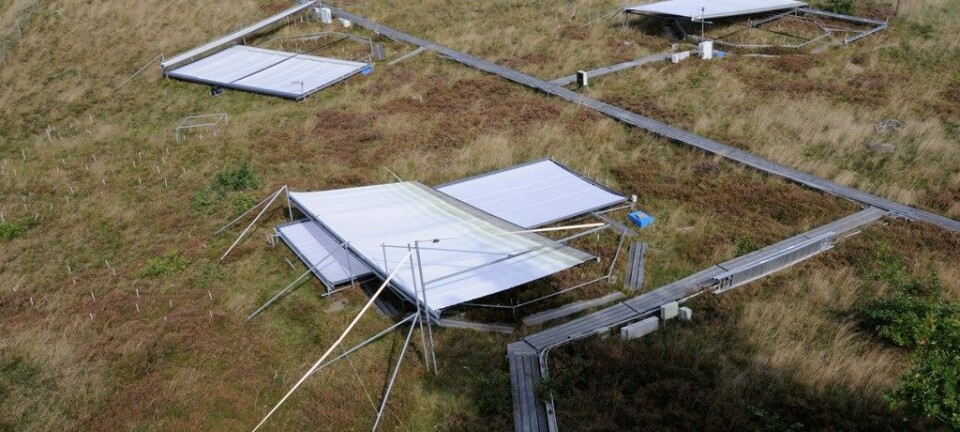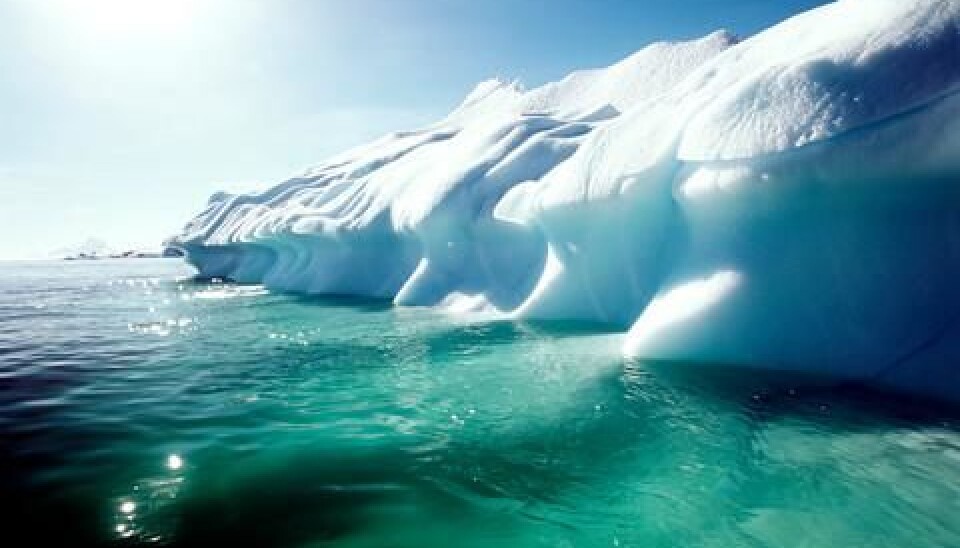
Ecosystem clash imminent as Arctic warming continues
Species from the Atlantic and the Pacific oceans will soon start to mix and this could have serious consequences.
For thousands of years, ice and harsh conditions have served as a natural barrier between species from the Atlantic and the Pacific oceans in the northern hemisphere.
New research, however, shows that large fish populations will soon be able to make the journey northward and defy the barrier between the Atlantic and the Pacific.
"Throughout most of the past three million years, marine life in the Pacific and Atlantic have been kept separate by harsh conditions in the Arctic. Our research shows that warming of the Arctic will mean that fish from the northern Pacific and Atlantic will soon be able to defy the natural barrier and begin to intermingle," says the study's author Mary Wisz, a senior researcher at the private consultancy and research institution DHI.
She points out that mixing life in the North Atlantic and North Pacific may have serious consequences for both fisheries and local ecosystems.
The study has just been published in Nature Climate Change.
Researcher: shocking
In the study, the scientists describe how climate change will make it possible for fish and other marine species to swim through the Northwest and Northeast passages between the Pacific and the Atlantic.
Until now it has been far too cold for most fish in the northern hemisphere to move into the ice-filled passages, but global warming will soon change that, the new study says.
"It comes as a bit of shock to me to see it in writing that some of our fish species may end up in the Pacific in future decades. It's a bit far out to realise that this is no longer unlikely," says co-author Peter Rask Møller, assistant professor and fish scientist from the Natural History Museum of Denmark.
The species already cross the boundary
Møller points out that the model's prediction is supported by the fact that a number of fish species have already moved northwards -- and that some species have actually crossed the passage between the North Atlantic and the Pacific.
"We know of some species that have already crossed over -- the Alaska Pollock, an extremely important fish in the northern Pacific. In recent years we have suddenly observed Alaska Pollock off the coast of Northern Norway. It was originally believed that the fish observed belonged to another species because we're simply not accustomed to thinking of fish on this side of the Atlantic might come from the Pacific," says Møller.
The Greenland whale is another species observed in the passages between the two major oceans.
"So changes have already begun but we predict that the exchange of species will start accelerating in 2050," says Wisz.
Isolation leads to unique species
According to the researchers, almost 3 million years have passed since the environment of the Arctic facilitated extensive exchange of species between the northern Pacific and the Atlantic -- and since then only limited exchanges of certain species have taken place between the two oceans.
The cold barrier between oceans have led to species developing in different directions in the two oceans.
"Life in the two oceans has developed in isolation from each other, for which reason species have developed which are very different from each other. The consequences could be huge if they suddenly start mixing," explains Wisz.
Suez Canal mixed oceans
One example of what can happen when two oceans suddenly mix occurred at the opening of the Suez Canal in 1869.
The canal connected the Red Sea and the Mediterranean and vastly different species from the two seas immediately began to mix.
After the opening of the Suez Canal the Mediterranean was invaded by organisms from the Red Sea. This has led aggressive ecological problems in the Mediterranean and today most fish stocks are dominated by species from the Red Sea -- many original Mediterranean species are almost extinct. This also presents many challenges to fishermen working in the Mediterranean, says Wisz.
The scientists believe commercial fishermen in the northern Atlantic and Pacific may be affected -- positively as well as negatively -- by a mixing of the species from the two oceans.
"The North Atlantic and North Pacific contribute some 40 per cent of all fish caught globally. This will offer the fishermen the opportunity to catch new species, but it will also present huge challenges," says Wisz.
Professor: this is not science fiction
At Aarhus University, Prof Jens-Christian Svenning describes the new study as "super exciting".
“It puts numbers to the timing and extent of a possible future exchange of fish between the Atlantic and the Pacific, which is extremely valuable. It shows that this may take place on a huge scale and may be massively important to the ecology of both the Atlantic and the Pacific if it happens. There are already reports of species crossing over to the other side, so it isn't pure science fiction," says Svenning, who studies climate change at the Department of Bioscience, Aarhus University.
“The study also raises masses of new questions about the consequences of the exchange of species. We can't yet say what these will be. This is not intended as criticism of the study, because that's the way it always is with new research -- it raises many questions and shows there is a need for more knowledge,” he says.
-----------
Read the original story in Danish on Videnskab.dk
Translated by: Hugh Matthews
